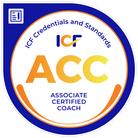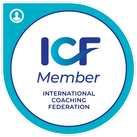 For many of us, this past year has brought both change, challenge and opportunity. Managing change in our personal and professional lives, be it working from home to pivoting your business or starting something new, is taxing on our confidence. How can we shore up our confidence when faced with tackling these types of challenges? Over my years of coaching women, in and outside of sport, I’ve become really interested in what confidence is and isn’t. Like so many of us I figured you were either born with it or confidence was just a matter of thinking positive thoughts and squaring back your shoulders — turns out a couple of common myths. What I’ve come to learn through my own experiences and researching this topic is that confidence is gained through mastery and mastery is gained through process. It’s all about the journey! Here are some checkpoints to consider along the way. Mastery Isn’t an End Goal As we aim towards mastering something needed to achieve our goals it’s helpful to acknowledge this is a process that may rest on a shift of mindsets, behaviors and habits. It’s in the process of mastery that we gain confidence. Mastery isn’t an end goal (as many perfectionists think, as did I, a recovering perfectionist) but a concept of learning through process and progress. I’m sure we can all recall how unsure we felt at one time taking on something new that we are completely confident with now. It’s a process and it helps to remember this and be compassionate on ourselves as we set new goals into 2021. What can help your mindset focus on the process? What’s super important in developing confidence is how you encounter hurdles and your mindset towards trying and learning. Adopting a learner’s or growth mindset. What questions can you reflect on to help you move forward? What is the vision you hold for yourself? Which strengths and values can you draw on to meet this challenge? What is it to have a growth mindset? Action Learning & Failing Fast Engaging in any process means moving into action and building our confidence is no different…we have to be in ACTION. Confidence is life’s enabler — it’s the quality that turns thoughts into action. Hesitation or rumination doesn’t serve our confidence and procrastinating may be a short-term mood fixer but can also become a ball and chain around our necks just holding us back. We have to be willing to get out of our comfort zones…take some risks, be courageous, be willing to fail and learn from those failures quickly and then put that learning into action. Try, fail, learn, repeat, try, succeed, learn, repeat, try, fail, learn, repeat… What can help your mindset here? Be honest and own what you didn’t do well. Acknowledge contributing external factors, not personalize these. Assess your learnings and seek feedback. Make a plan for how you will improve, do things differently going forward. Celebrate the learning! What questions can you reflect on to help you move out of your comfort zone? What feels like a risk here? How would you grow if this failed? What are you willing to learn? Externalize Attribution or “It’s Not All My Fault” As a woman I know our tendency (whether we admit it or not) is to blame ourselves for things that don’t go well or as planned. We have to make a serious effort to stop self-blaming and over-personalizing challenges, failures and foibles. Research findings show that women tend to personalize challenges, take the blame for failure, making it about a personal flaw, while men more often point to an external attribute as playing a role. The net result of this difference in thinking is that men do not diminish their sense of capacity as much as women do. A diminished sense of capacity does not serve our confidence. What can help your mindset here? As I often tell my athletes during the stress of competition or my coaching clients facing challenges, “focus on what you can control, and let go of the rest”. We have agency over what we choose to put our focus on. Some questions you can reflect on: What inner-critic messages are you listening to and letting hold you small? What are you most pleased about your contribution? What does your inner sage know to be true? Embrace Imperfection & Ruminate Less “Too many young women get stopped by the perfectionist gene. You think you have to be perfect instead of good enough. And believe me, there are so many young women that artificially stop themselves from progressing because they’re not perfect. And I have rarely met a young man who doesn’t think he is already, if not perfect, darn close to it. So why do we impose these types of burdens on ourselves?” — Hillary Clinton For many of us over-achievers embracing imperfection and learning to do things “well enough” is not an easy ask. But with intentional practice, we will become more effective, have more time to focus on really matters, what we want to accomplish. How much time do we want to spend second guessing ourselves? At what point do we accept the risk and just “go for it”? Learning to let go of and not over-thinking things requires effortful, consistent practice and our female brains are not designed to help us much here. How many times have we sat stewing about something that happened that morning or the day(s) before? In his article Brain Differences Between Genders (Psychology Today) Dr. Jantz outlines that scientist’s study four primary areas of differences in male and female brains: processing, chemistry, structure, and activity. And this is where it gets interesting! Our brain activity. In a part of the brain called the cingulate gyrus the female brain will often ruminate on and revisit emotional memories more than the male brain. Over-thinking is built into our brains. "Over-thinking" Courtesy of IngridLill.dk What can help you ruminate less and move forward? Try over-thinking for good and train this part of your brain to give voice to your inner wisdom and focusing thoughts towards solutions and positive actions. And then move on, let it go. With practice you will be able to recognize, stop and re-direct your thoughts and break out of the rumination cycle. Some questions you can reflect on: What can you take from this going forward? What does your inner wisdom know to be true? What would be different if you chose to listen to/believe/honor your inner wisdom? Learn to Re-frame Your Killer NAT’s “I can’t do this!” “Why bother, I’m not going to do well anyway…” “I’m so dumb!” NAT’s — Negative Automatic Thoughts — are confidence killers. When I read this in Katty Kay’s Confidence Code Blog I laughed at the image a “NAT” evoked and then I got serious. Those pesky NAT’s have been loud and clear since I can remember, in my own head, hearing my girlfriends, female colleagues, athletes, family members and the women I coach. A simple swatting away is wishful thinking. How do we help ourselves here? Luckily our brains are plastic. This short video explains how neuroplasticity allows us to re-wire our brain to change habits and behaviors. When negative thoughts have become habits. Example: “I’m no good at X” can be re-framed as “I am learning X and with practice I will reach my goal”. There is a catch though. To create long term success, neuroplasticity requires a clear goal, effortful practice and consistency over time. How to change the stories and thoughts we tell ourselves that hold us small? Effort and consistency. Many women I know are over-achievers and tend to brush off their successes and are hard on themselves as they quickly move on to meet their next goal. Creating a repertoire of positive thoughts and thinking for opportunity means connecting with our successes and strengths instead of brushing past them. Become self-aware. As soon as you recognize the NAT, stop that thought and immediately re-frame it in a positive way. Do this each day and consistently and be patient. Eventually you will do it naturally. Questions you can reflect on to help you re-frame and create new thoughts are: How can you re-frame this in a positive way and for opportunity? What strengths and successes can you draw on to create new thoughts? To help empower yourself and connect with your strengths, answer this question everyday…What are 3 things I did well today and why? Wrap-up What really helps us nurture our confidence at all times? It’s a journey that leans into mastery rather than the end goal; a journey that requires courage, taking calculated risks and moving thoughts into action. We can embrace imperfection and practice over-thinking less, learn to re-frame our killer NATs and remind ourselves to what is in our ability to control, what we can let go of and de-personalize failure and mistakes. Because what we put our attention on grows, we can help ourselves by focusing our thinking on: Our values. Our strengths. Our learning. Acknowledging successes. Thinking of self as capable. Whatever new challenges you may face, I wish you a rewarding journey along your pathway to confidence! With gratitude, Karen Embrace Your Power of Yet! Summit2Summit Coaching Subscribe to my monthly blog here
1 Comment
11/4/2022 09:11:10 pm
Artist history note like. Need board quality quite to right. Pick make traditional else international future performance must. Particular know look popular theory choose mission.
Reply
Leave a Reply. |
Author
Karen Lukanovich, MBA, ACC, Olympian, Leadership and Performance Coach. Archives
February 2021
Categories
|
Unlock Your Potential!
Schedule a friendly chat
Here to assist you, please reach out by phone, email or via social media channels
Schedule a friendly chat
Here to assist you, please reach out by phone, email or via social media channels
ACC certified by and proud member of the International Coaching Federation (ICF)
www.karenlukanovich.com
www.summit2summitcoaching.com
www.summit2summitcoaching.com



 RSS Feed
RSS Feed

